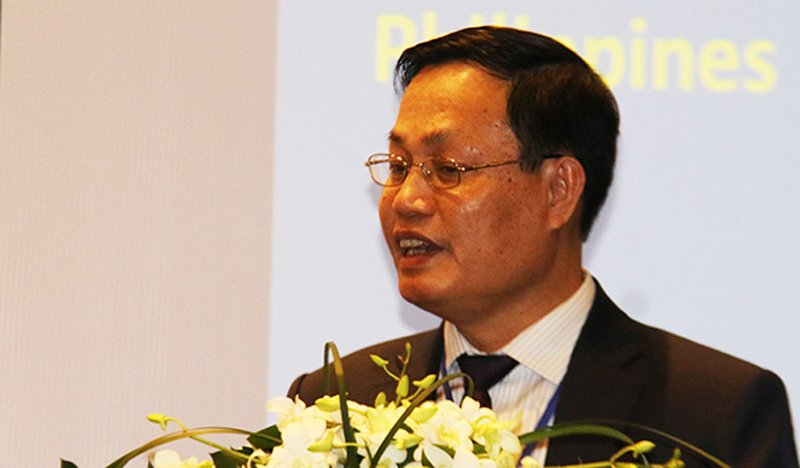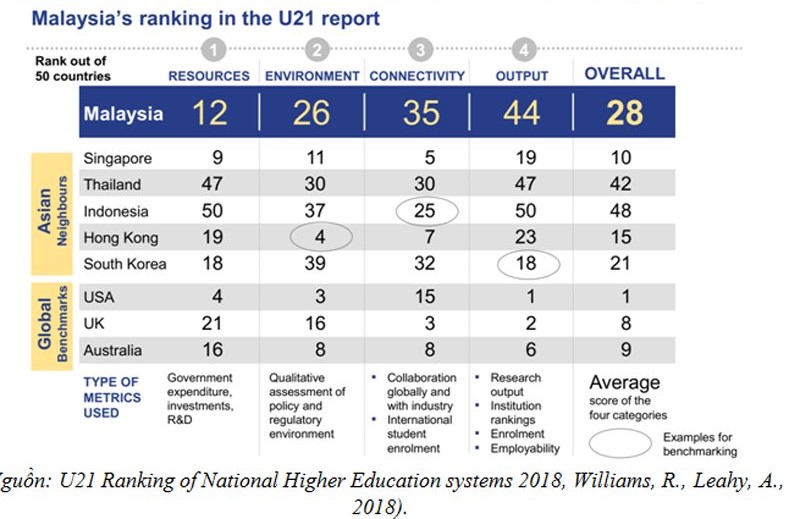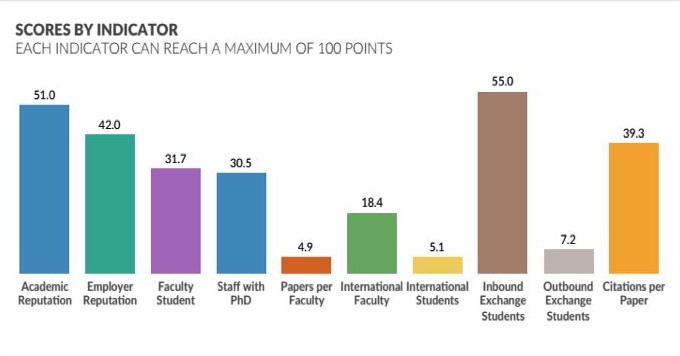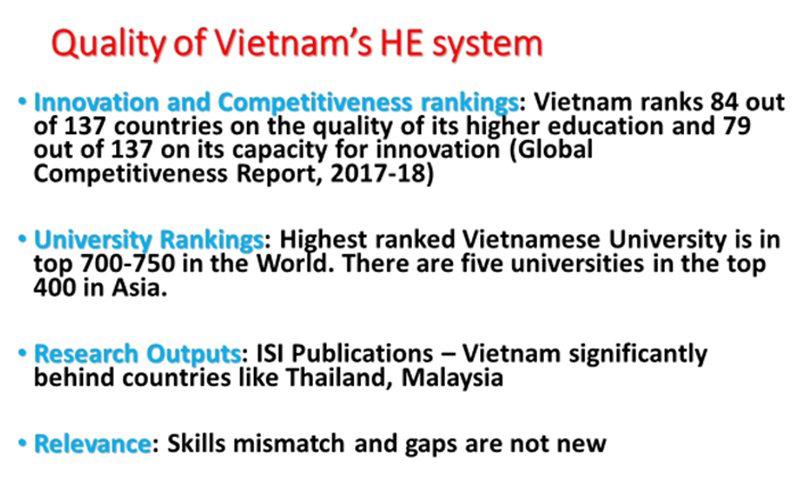Vietnamese higher education could rank in the group of 80 out of 196 countries in the world
In various rankings of national higher education systems, Vietnam has not yet appeared, although countries in the region such as Thailand and Malaysia have already made it into the top 50. However, with the entry of 2 national universities into the top 1,000, it can be said that the Vietnamese university system belongs to the group of 80 out of 196 countries in the world.
This information was provided by the research group of Professor Nguyen Huu Duc, Vice President of Vietnam National University, Hanoi, at a seminar on “standardization and international integration” organized by the National Assembly Committee for Culture, Education, Youth, Adolescents and Children on August 17.

Professor Nguyen Huu Duc at the conference (Source of photo: Nguyen Thao)
Not Present at the U21 Field
Universitas21 is a global network of research universities, established in 1997. The ranking of the education systems of U21 countries by the Institute of Applied Economic and Social Research at the University of Melbourne since 2012, ranks the top 50 leading countries in the world.
In the latest ranking results of 2018, for each domain (standardized), Serbia is the number 1 country in Resources; the United States is the number 1 country in Policy Environment; Ukraine is the number 1 country in Connectivity; and Serbia is the number 1 country in Output.
In the overall ranking, the top 5 countries in the world are Finland, the United Kingdom, Serbia, Denmark, and Sweden, respectively. Additionally, the United States is ranked 15th in the overall ranking, and Ukraine is ranked 22nd.
According to these results, the ASEAN region includes 4 countries: Singapore (ranked 10th), Malaysia (ranked 28th), Thailand (ranked 42nd), and Indonesia (ranked 48th) (Table 2). Vietnam is not present.

Absent from the QS Ranking
Besides ranking universities, since 2016, the QS ranking organization also ranks the potential of higher education systems based on 4 criteria: The average ranking of a country’s universities in the top 500, The number of opportunities for students to study at the best universities; The position and leading capacity of the highest-ranked institution; Comparison of the country’s investment efficiency according to GDP.
According to the 2018 ranking results, the ASEAN region includes 5 countries. These are Malaysia (28th), Singapore (29th), Thailand (38th), Indonesia (39th), and the Philippines (45th). Once again, Vietnam was not able to make it onto the list.
Vietnam is in a trap of research productivity and internationalization level
According to the research team, in 2018, on a global scale, Vietnam had 2 national universities ranked in the “top 1,000” of the QS world university rankings. In the Asian region, Vietnam has 5 higher education institutions: Vietnam National University, Hanoi (139), Vietnam National University, Ho Chi Minh City (142), Hanoi University of Science and Technology (291-300), Can Tho University (301-350), and Hue University (351-400).
However, comparing Vietnam National University, Hanoi with other universities in the “top 400 in Asia,” the results have only slightly exceeded the average by about 5%.
A detailed analysis of the ranking results for each criterion shows that Vietnam National University, Hanoi, in particular, and Vietnamese universities in general, are in a trap of research productivity and the level of internationalization.
The research team noted that, with the presence of 2 national universities in the top 1,000, the Vietnamese university system could be ranked in the group of 80 out of 196 countries in the world.

The academic reputation and employer reputation ratings of Vietnamese universities are much lower than those mentioned. In summary, the ranking results of Vietnamese universities are very low.
When compared to the ranking results of the top universities in the ASEAN region, the quality of publications (evaluated by the number of citations) of Vietnam National University, Hanoi, and Vietnam National University, Ho Chi Minh City “can basically be compared with the top universities in the region, but our research productivity is lower.”
Besides the reasons related to the research level and internationalization traps, the low ratio of academic reputation and reputation among employers also reflects the relationship between the higher education system and stakeholders, regarding the models and operational mechanisms of Vietnamese universities, where market mechanisms and the goal of meeting stakeholders’ requirements have not been adequately addressed.
The research team believes that solving these problems requires capabilities: adapting to the trends of global higher education transformation, organizing training oriented towards entrepreneurship, academic research oriented towards innovation, building digital universities, and fulfilling the third function of higher education.
In his presentation, Professor Nguyen Huu Duc concluded: For the sustainable development of higher education, it is necessary to build a strategy towards standardization, set development targets towards integration, and evaluate and compare with countries around the world.

Report by Mr. Dilip Parajuki, from the World Bank
In the opening report of the seminar, Mr. Dilip Parajuli (World Bank Vietnam) introduced another “ranking index” regarding the quality of higher education in Vietnam. It is ranked 84th out of 137 according to a global competitiveness index for 2017-2018. According to him, the main reason for this low ranking is due to policies that are holding back the “explosion” of universities. Vietnam needs to shed the “one-size-fits-all” approach in financial and administrative management at universities to develop.
Speaking after the discussion session this morning, Deputy Prime Minister Vu Duc Dam said that, according to some comprehensive and inferential evaluations, Vietnamese higher education ranks about 80th in the world, while secondary education ranks 50th. He humorously remarked, “To some extent, higher education should strive to catch up with their ‘younger siblings,’ secondary education.”
Nguyen Thao
Source of article: access here












